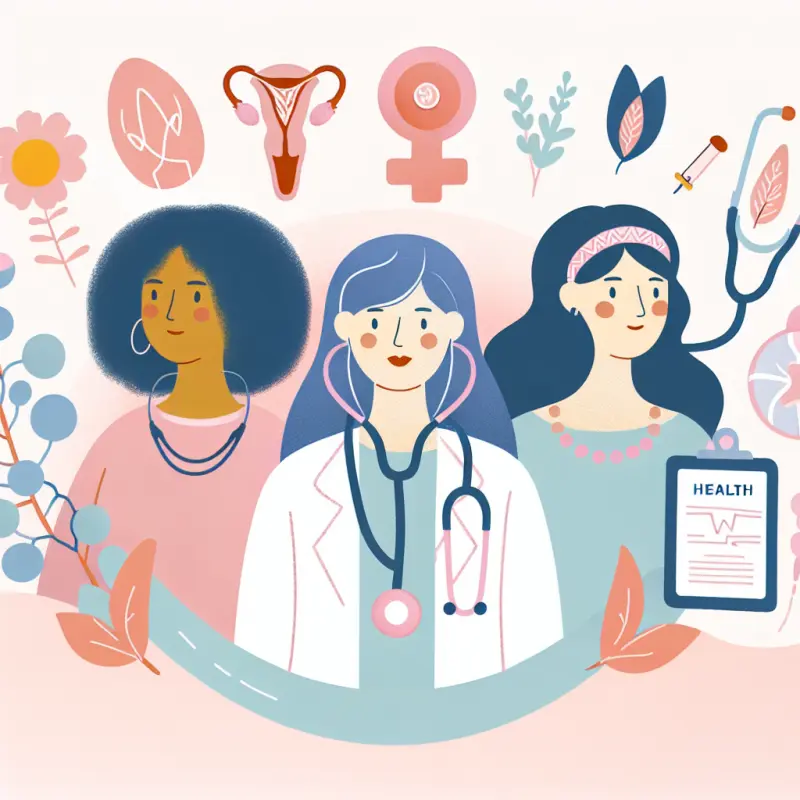Common Menstrual Disorders: Symptoms, Causes, and Treatments

Common Menstrual Disorders: Symptoms, Causes, and Treatments
Introduction
Menstrual disorders are common and can significantly impact quality of life. Understanding the symptoms, causes, and treatment options can help you take control of your menstrual health. This article covers the most prevalent menstrual disorders, how to recognize them, and what you can do about them.
Table of Contents
- What Are Menstrual Disorders?
- Common Types of Menstrual Disorders
- Dysmenorrhea (Painful Periods)
- Menorrhagia (Heavy Periods)
- Oligomenorrhea (Infrequent Periods)
- Amenorrhea (Absent Periods)
- Premenstrual Syndrome (PMS)
- Premenstrual Dysphoric Disorder (PMDD)
- Polycystic Ovary Syndrome (PCOS)
- Endometriosis
- Causes and Risk Factors
- Diagnosis
- Treatment Options
- When to See a Doctor
- Conclusion
1. What Are Menstrual Disorders?
Menstrual disorders are conditions that affect the regularity, duration, or intensity of menstrual cycles. They can cause pain, heavy or light bleeding, missed periods, and emotional symptoms.
2. Common Types of Menstrual Disorders
Dysmenorrhea (Painful Periods)
- Symptoms: Cramping, lower back pain, nausea, headaches.
- Causes: Prostaglandin overproduction, endometriosis, fibroids.
- Treatment: NSAIDs, heat therapy, exercise, hormonal birth control.
Menorrhagia (Heavy Periods)
- Symptoms: Soaking through pads/tampons every hour, passing large clots, anemia.
- Causes: Hormonal imbalances, fibroids, polyps, bleeding disorders.
- Treatment: Iron supplements, hormonal therapy, surgery in severe cases.
Oligomenorrhea (Infrequent Periods)
- Symptoms: Cycles longer than 35 days, fewer than 9 periods per year.
- Causes: PCOS, thyroid disorders, excessive exercise, stress.
- Treatment: Address underlying cause, lifestyle changes, hormonal therapy.
Amenorrhea (Absent Periods)
- Symptoms: No periods for 3+ months (not due to pregnancy).
- Causes: Pregnancy, PCOS, low body weight, stress, thyroid issues.
- Treatment: Treat underlying cause, nutritional support, stress management.
Premenstrual Syndrome (PMS)
- Symptoms: Mood swings, bloating, breast tenderness, fatigue, cravings.
- Causes: Hormonal fluctuations, neurotransmitter changes.
- Treatment: Diet, exercise, stress reduction, magnesium, B6, hormonal therapy.
Premenstrual Dysphoric Disorder (PMDD)
- Symptoms: Severe mood changes, depression, anxiety, irritability.
- Causes: Extreme sensitivity to hormonal changes.
- Treatment: SSRIs, hormonal therapy, lifestyle changes.
Polycystic Ovary Syndrome (PCOS)
- Symptoms: Irregular periods, excess hair growth, acne, weight gain.
- Causes: Insulin resistance, hormonal imbalance.
- Treatment: Diet, exercise, metformin, hormonal birth control.
Endometriosis
- Symptoms: Severe cramps, pain during sex, heavy periods, infertility.
- Causes: Endometrial tissue growing outside the uterus.
- Treatment: Pain relief, hormonal therapy, surgery.
3. Causes and Risk Factors
- Genetics
- Hormonal imbalances
- Stress
- Weight changes
- Underlying health conditions (thyroid, pituitary, etc.)
4. Diagnosis
Diagnosis may include:
- Medical history and symptom tracking
- Physical and pelvic exams
- Blood tests (hormones, thyroid, iron)
- Ultrasound or imaging
- Laparoscopy (for endometriosis)
5. Treatment Options
- Lifestyle: Nutrition, exercise, stress management
- Medications: NSAIDs, hormonal birth control, antidepressants (for PMDD)
- Supplements: Magnesium, B6, iron
- Procedures: Surgery for fibroids, polyps, or endometriosis
6. When to See a Doctor
Seek medical advice if you experience:
- Very heavy bleeding
- Severe pain
- Missed periods (not due to pregnancy)
- Symptoms that interfere with daily life
7. Conclusion
Menstrual disorders are common but treatable. Early recognition and intervention can improve quality of life. If you have concerns about your cycle, don't hesitate to reach out to a healthcare provider.
Moone — Empowering you to take charge of your menstrual health.